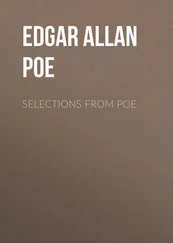Edgar Poe - CRITICISM
Здесь есть возможность читать онлайн «Edgar Poe - CRITICISM» весь текст электронной книги совершенно бесплатно (целиком полную версию без сокращений). В некоторых случаях можно слушать аудио, скачать через торрент в формате fb2 и присутствует краткое содержание. Жанр: на английском языке. Описание произведения, (предисловие) а так же отзывы посетителей доступны на портале библиотеки ЛибКат.
- Название:CRITICISM
- Автор:
- Жанр:
- Год:неизвестен
- ISBN:нет данных
- Рейтинг книги:3 / 5. Голосов: 1
-
Избранное:Добавить в избранное
- Отзывы:
-
Ваша оценка:
- 60
- 1
- 2
- 3
- 4
- 5
CRITICISM: краткое содержание, описание и аннотация
Предлагаем к чтению аннотацию, описание, краткое содержание или предисловие (зависит от того, что написал сам автор книги «CRITICISM»). Если вы не нашли необходимую информацию о книге — напишите в комментариях, мы постараемся отыскать её.
CRITICISM — читать онлайн бесплатно полную книгу (весь текст) целиком
Ниже представлен текст книги, разбитый по страницам. Система сохранения места последней прочитанной страницы, позволяет с удобством читать онлайн бесплатно книгу «CRITICISM», без необходимости каждый раз заново искать на чём Вы остановились. Поставьте закладку, и сможете в любой момент перейти на страницу, на которой закончили чтение.
Интервал:
Закладка:
Between Cowper and Young, perhaps, (with both of whom he has many points of analogy,) would be the post assigned him by an examination at once general and superficial. Even in this view, however, he has a juster appreciation of the beautiful than the one, of the sublime than the other- a finer taste than Cowper- an equally vigorous, and far more delicate imagination than Young. In regard to his proper rank among American poets there should be no question whatever. Few- at least few who are fairly before the public, have more than very shallow claims to a rivalry with the author of Thanatopsis.
THE OLD CURIOSITY SHOP, AND OTHER TALES
By Charles Dickens, With Numerous Illustrations by Cattermole and Browne. Philadelphia: Lea amp; Blanchard.
By Charles Dickens. (Boz.) With Ninty-one Illustrations by
George Cattermole and Hablot Browne. Philadelphia: Lea amp; Blanchard.
WHAT WE here give [the above titles] is the duplicate title, on two separate title-pages, of an octavo volume of three hundred and sixty-two pages. Why this method of nomenclature should have been adopted is more than we can understand- although it arises, perhaps, from a certain confusion and hesitation observable in the whole structure of the book itself. Publishers have an idea, however, (and no doubt they are the best judges in such matters) that a complete work obtains a readier sale than one "to be continued;" and we see plainly that it is with the design of intimating the entireness of the volume now before us, that "The Old Curiosity Shop and other Tales," has been made not only the primary and main title, but the name of the whole publication as indicated by the back. This may be quite fair in trade, but is morally wrong not the less. The volume is only one of a series- only part of a whole; and the title has no right to insinuate otherwise. So obvious is this intention to misguide, that it has led to the absurdity of putting the inclusive, or general, title of the series, as a secondary instead of a primary one. Anybody may see that if the wish had been fairly to represent the plan and extent of the volume, something like this would have been given on a single page MASTER HUMPHREY'S CLOCK
By Charles Dickens. Part I. Containing The Old Curiosity Shop, and other tales, with numerous illustrations, amp;c. amp;c.
This would have been better for all parties, a good deal more honest, and a vast deal more easily understood. In fact, there is sufficient uncertainty of purpose in the book itself, without resort to mystification in the matter of title. We do not think it altogether impossible that the rumors in respect to the sanity of Mr. Dickens which were so prevalent during the publication of the first numbers of the work, had some slight- some very slight foundation in truth. By this, we mean merely to say that the mind of the author, at the time, might possibly have been struggling with some of those manifold and multiform aberrations by which the nobler order of genius is so frequently beset- but which are still so very far removed from disease.
There are some facts in the physical world which have a really wonderful analogy with others in the world of thought, and seem thus to give some color of truth to the (false) rhetorical dogma, that metaphor or simile may be made to strengthen an argument, as well as to embellish a description. The principle of the vis inertiae, for example, with the amount of momentum proportionate with it and consequent upon it, seems to be identical in physics and metaphysics. It is not more true, in the former, that a large body is with more difficulty set in motion than a smaller one, and that its subsequent impetus is commensurate with this difficulty, than it is, in the latter, that intellects of the vaster capacity, while more forcible, more constant, and more extensive in their movements than those of inferior grade, are yet the less readily moved, and are more embarrassed and more full of hesitation in the first few steps of their progress. While, therefore, it is not impossible, as we have just said, that some slight mental aberration might have given rise to the hesitancy and indefinitiveness of purpose which are so very perceptible in the first pages of the volume before us, we are still the more willing to believe these defects the result of the moral fact just stated, since we find the work itself of an unusual order of excellence, even when regarded as the production of the author of "Nicholas Nickleby." That the evils we complain of are not, and were not, fully perceived by Mr. Dickens himself, cannot be supposed for a moment. Had his book been published in the old way, we should have seen no traces of them whatever.
The design of the general work, "Humphrey's Clock," is simply the common-place one of putting various tales into the mouths of a social party. The meetings are held at the house of Master Humphreyan antique building in London, where an old-fashioned clock case is the place of deposit for the M.S.S. Why such designs have become common is obvious. One half the pleasure experienced at a theatre arises from the spectator's sympathy with the rest of the audience, and, especially, from his belief in their sympathy with him. The eccentric gentleman who not long ago, at the Park, found himself the solitary occupant of box, pit, and gallery, would have derived but little enjoyment from his visit, had he been suffered to remain. It was an act of mercy to turn him out. The present absurd rage for lecturing is founded in the feeling in question. Essays which we would not be hired to read- so trite is their subject- so feeble is their execution- so much easier is it to get better information on similar themes out of any Encyclopaedia in Christendom- we are brought to tolerate, and alas, even to applaud in their tenth and twentieth repetition, through the sole force of our sympathy with the throng. In the same way we listen to a story with greater zest when there are others present at its narration besides ourselves. Aware of this, authors without due reflection have repeatedly attempted, by supposing a circle of listeners, to imbue their narratives with the interest of sympathy. At a cursory glance the idea seems plausible enough. But, in the one case, there is an actual, personal, and palpable sympathy, conveyed in looks, gestures and brief comments- a sympathy of real individuals, all with the matters discussed to be sure, but then especially, each with each. In the other instance, we, alone in our closet, are required to sympathise with the sympathy of fictitious listeners, who, so far from being present in body, are often studiously kept out of sight and out of mind for two or three hundred pages at a time. This is sympathy double-diluted- the shadow of a shade. It is unnecesary to say that the design invariably fails of its effect.
In his preface to the present volume, Mr. Dickens seems to feel the necessity for an apology in regard to certain portions of his commencement, without seeing clearly what apology he should make, or for what precise thing he should apologize. He makes an effort to get over the difficulty, by saying something about its never being "his intention to have the members of 'Master Humphrey's Clock' active agents in the stories they relate," and about his "picturing to himself the various sensations of his hearers-thinking how Jack Redburn might incline to poor Kit- how the deaf gentleman would have his favorite and Mr. Miles his," amp;c. amp;c.- but we are quite sure that all this is as pure a fiction as "The Curiosity Shop?" itself. Our author is deceived. Occupied with little Nell and her grandfather, he had forgotten the very existence of his interlocutors until he found himself, at the end of his book, under the disagreeable necessity of saying a word or two concerning them, by way of winding them up. The simple truth is that, either for one of the two reasons at which we have already hinted, or else because the work was begun in a hurry, Mr. Dickens did not precisely know his own plans when he penned the five or six first chapters of the "Clock."
Читать дальшеИнтервал:
Закладка:
Похожие книги на «CRITICISM»
Представляем Вашему вниманию похожие книги на «CRITICISM» списком для выбора. Мы отобрали схожую по названию и смыслу литературу в надежде предоставить читателям больше вариантов отыскать новые, интересные, ещё непрочитанные произведения.
Обсуждение, отзывы о книге «CRITICISM» и просто собственные мнения читателей. Оставьте ваши комментарии, напишите, что Вы думаете о произведении, его смысле или главных героях. Укажите что конкретно понравилось, а что нет, и почему Вы так считаете.









